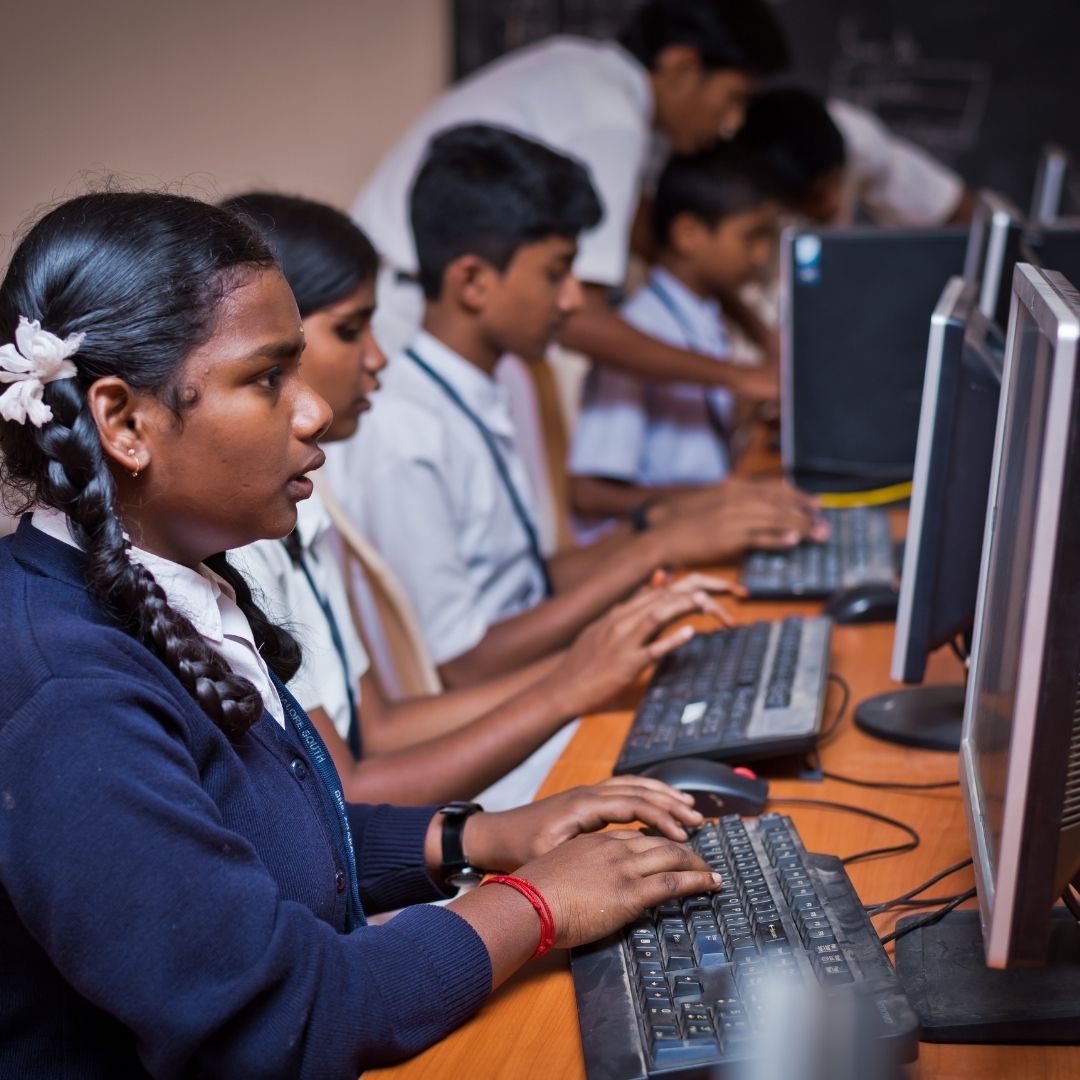
Image Credit: Bal Utsav
Revamp Learning! Education-Based NGO Plans 360-Degree Revitalisation Of Schools In Tamil Nadu, Telangana
Tamil Nadu, 21 April 2022 8:33 AM GMT
Editor : Snehadri Sarkar |
While he is a massive sports fanatic, his interest also lies in mainstream news and nitpicking trending and less talked about everyday issues.
Creatives : Ratika Rana
Her primary objective is to inform, promote, educate and cultivate readers through writing.
According to the ASER (rural) survey, 70.3% of children in India will be enrolled in government schools in 2021. But only 8% to 18% of government schools have internet facilities in Telangana and Tamil Nadu, respectively.
In India, education has changed considerably in the last two years. While the governments came up with several schemes to ensure that students can keep up with the overnight digitalisation of education, several education-based NGOs worked day and night to ensure a minimal learning gap during the pandemic. Today, India's leading education-based NGO, Bal Utsav, announced its foray into Hyderabad and Chennai. The NGO aims to replicate its successfully run flagship program 'iShaala' in the city, starting with Mandala Praja Parishad Primary School, Nizampet and Government Model Higher Secondary School, Saidapet, Chennai. Bal Utsav is also looking to execute its 360-degree revitalisation program in 400 schools in Tamil Nadu and 300 schools in Telangana.
What Is iShaala?
Bal Utsav's iShaala schools are designed for children studying in government schools that are innovative, inclusive, interactive, internet-powered and inspire communities. These internet-powered Classrooms will be implemented in the already existing government schools. Through iShaalas, Bal Utsav brings an interactive learning mode by partnering with the country's leading ed-tech companies to make age-appropriate content available and enable blended learning for students. This content can be accessed seamlessly either through their devices (of children) or that of their parents/guardians, or even Smart TVs and tabs provided to teachers and schools.
The program also consists of focussed & sustainable interventions that include four critical areas-School Infrastructure, which has smart infrastructures such as internet connectivity, Smart TVs and Ed-tech content; WASH (Water, Sanitation, & Hygiene); teacher development (Upskilling), and Scholarships for students. Binu Verma, Co-founder and Director, Bal Utsav, said in the official press release, "After having successfully rolled out the program in other States, the thought of seeing children in Tamil Nadu being supported through the iShaala rollout and to bring life-changing education to children in Tamil Nadu is exciting, and I believe we can only do it together. We have a long term view and strategy for our operations in Tamil Nadu. We want to potentially create the ability to help exponentially more children get effective education, which we believe will have an even greater impact over time".
Only 8-18 % Of Government Schools Have Internet
According to the ASER (rural) survey, 70.3 per cent of children in India will be enrolled in government schools in 2021. But only 8 to 18 per cent of government schools have internet facilities in Telangana and Tamil Nadu, respectively. There is an urgent need to make these institutions fully functional and enable them to operate at their highest level of efficiency. Thus it is vital to have model schools like iShaala to arrest the trend of ailing Public Schools and revitalise them.
The Telangana and Tamil Nandu governments are aggressively promoting setting up smart classrooms and training students and teachers to adapt to this new mode of learning. To further fuel digital learning, Bal Utsav will replicate its success in Nizamabad and Chennai, will equip the Mandala Praja Parishad Primary School and Government Model Higher Secondary School with Smart TVs that come with pre-loaded educational content, empower teachers with tablets to conduct classes within the community in case there is another lockdown.
The NGO also has a track record of implementing the blended learning model in more than 100 government schools through their iShaala program in Karnataka. Due to this convenience of learning, some of the Bal Utsav supported government schools witnessed reduced dropouts and a significant increase in reverse migration, which means children in the district moved to government schools from other private institutions. Bal Utsav, to date, has reformed over 200 government schools through its sustainable interventions and helped over 8 lakh students.
Also Read: How Could Ahmedabad Make BRTS A Success Story While Other Cities Could Not?
 All section
All section














